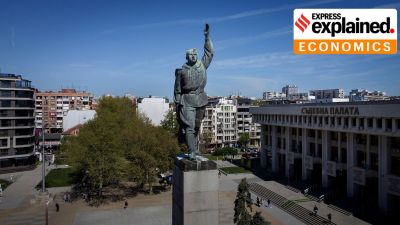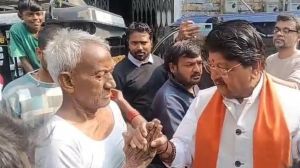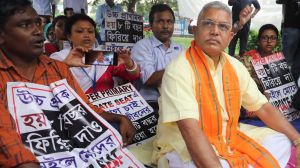Pak146;s General chaos
The coup is about Musharraf8217;s survival. But it is Pakistan8217;s survival that should concern the world.

Pakistan is accustomed to periodic impositions of martial law, or emergency. But General Pervez Musharraf8217;s 8220;second coup8221; comes at an especially fraught juncture, and its repercussions could be far more destabilising than his patrons in Washington appear to believe. In a proclamation of emergency and a subsequent televised address, he was at pains to emphasise the grave challenge posed by religious extremists. This challenge is real. It is evident in the recent suicide attacks in Karachi, Rawalpindi and Sargodha, and in the erosion of Islamabad8217;s writ not just in tribal areas but now also in 8216;settled8217; areas like Swat and not so long ago in the heart of the capital in the Lal Masjid complex. But the calendar exposes Musharraf8217;s case that he imposed emergency to adequately fight terror. This coup is about his personal survival.
The term of the current assemblies, in which his political supporters dominate, runs out on November 15. And his October re-election as president has not been notified because the supreme court is still hearing a case on his eligibility to be re-elected. Yet, by drawing the battlelines against the judiciary, Musharraf could be undermining the fight against terror. A big problem Pakistan8217;s army has been facing in fighting religious extremism lies in the popular impression being created by anti-state actors that this battle is being waged at others8217; behest, notably America8217;s. By targeting the court and using extra-constitutional means to keep himself in power in the name of fighting terrorism, all he does is further alienate civil society.
US Secretary of State Condoleezza Rice has reacted by saying that while emergency proclamation is 8220;highly regrettable8221; she hoped he would still move towards quick elections. Like it or not, the US administration cannot disclaim ownership of Musharraf8217;s actions. Post 9/11, its foreign policy has been supposedly oriented to bringing in democracy and fighting terrorism in the Muslim world. Musharraf, with a clearly half-hearted fight against the Al-Qaeda/Taliban and with a democratic process tilted in favour of political actors of his choice, has already received 10 billion in mostly military aid. America8217;s burden is not just that its favourite despot could be in trouble domestically. It is also that America has sheltered him and emboldened him to curtail civil rights and undermine democratic institutions. This is as much a crisis for the United States as it is for South Asia.
- 01
- 02
- 03
- 04
- 05































